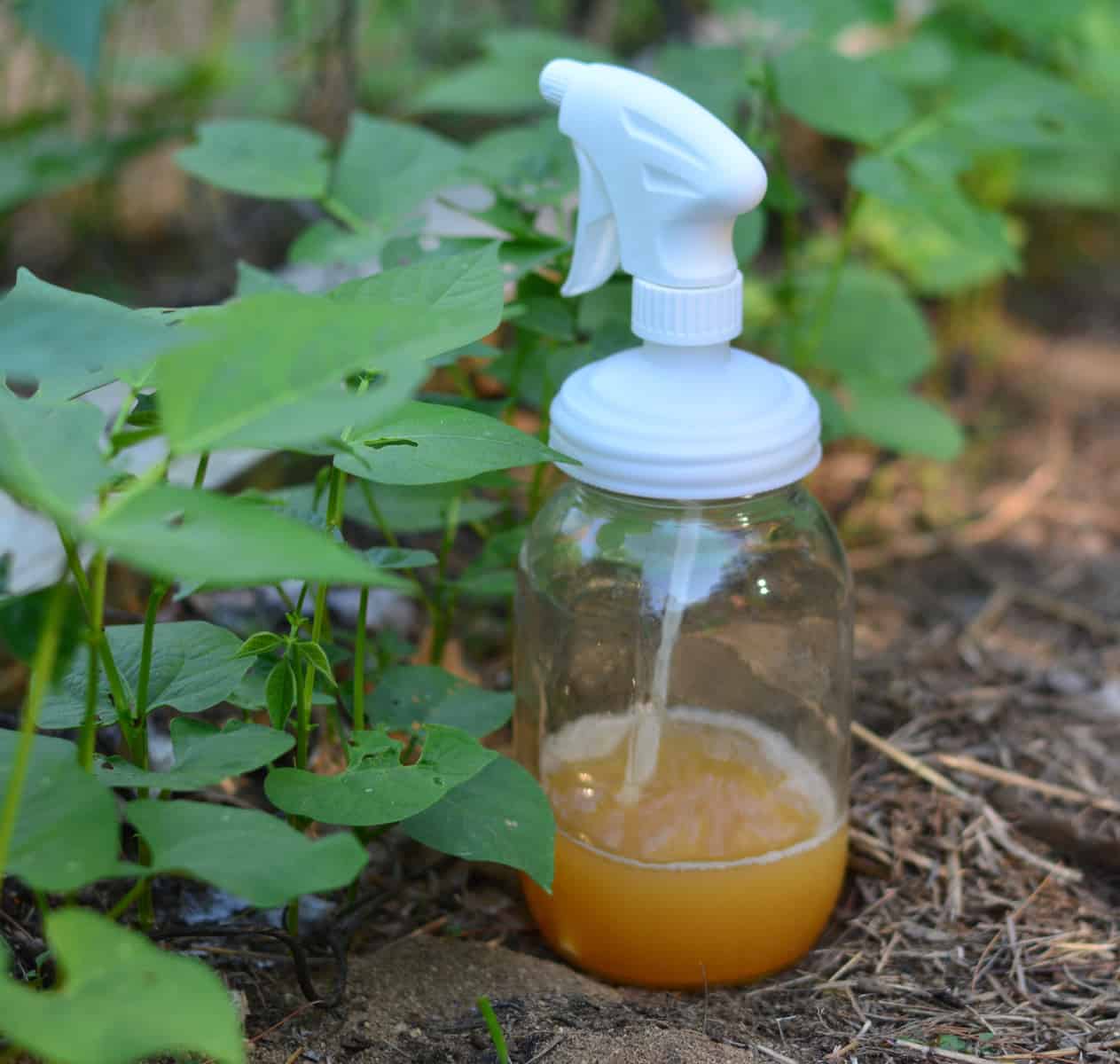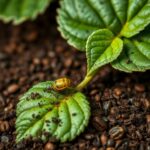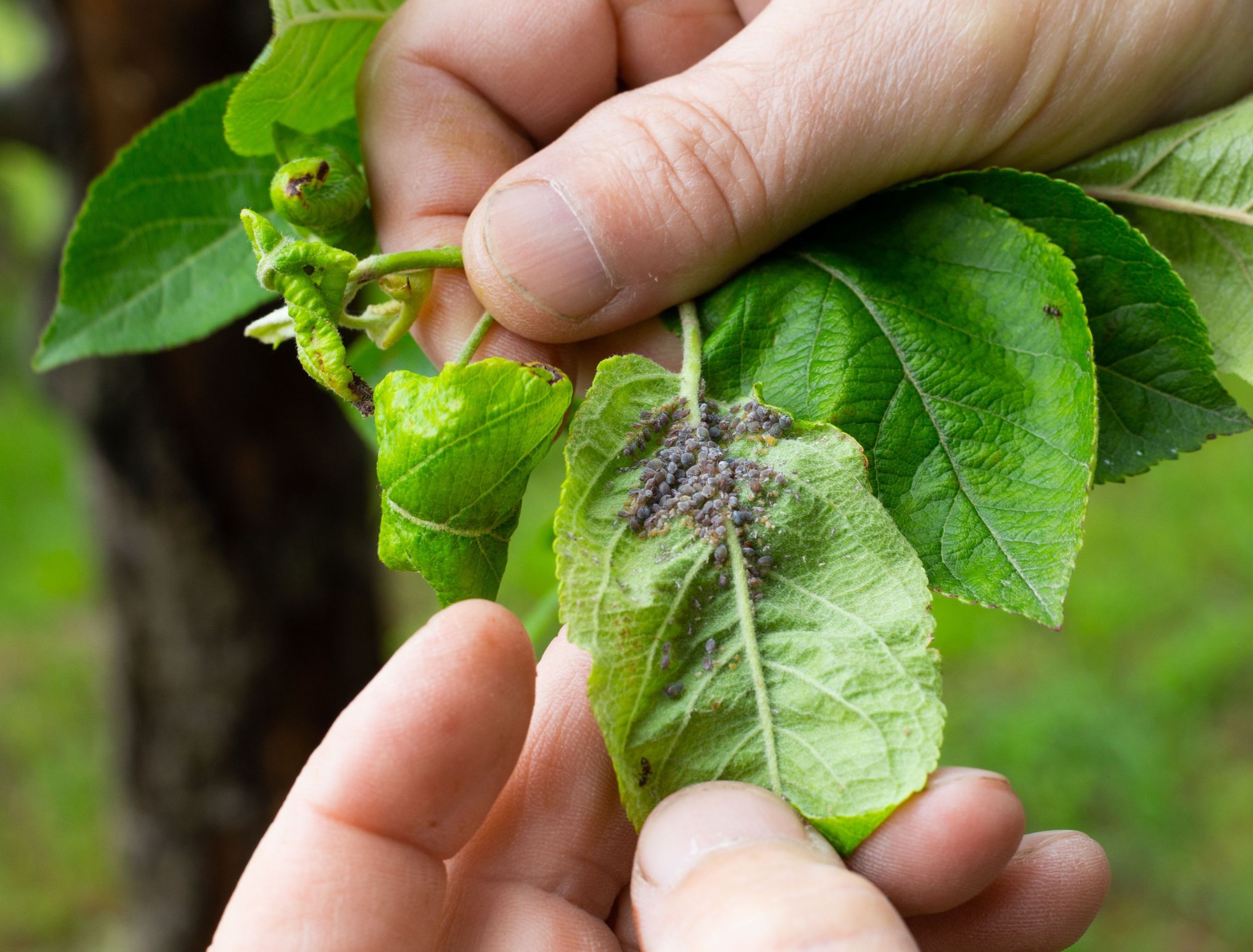What is the Best Homemade Aphid Killer? Discover Top Recipes and Tips for Effective Pest Control

Aphids can wreak havoc on gardens, feeding on the sap of plants and potentially leading to stunted growth and disease. While chemical pesticides can be effective, many gardeners seek safer alternatives that are environmentally friendly and easy to make at home. This article delves into the best homemade aphid killers, offering a variety of effective recipes and practical tips. From simple kitchen ingredients to natural oils, discover how to combat these pests without harming beneficial insects or contaminating your garden. With the right knowledge and preparation, you can protect your plants and promote a healthy growing environment.
What is the Best Homemade Aphid Killer?
A highly effective homemade aphid killer is a mixture of water and dish soap, which not only suffocates the aphids but also disrupts their cell membranes, leading to their demise. To create this solution, mix approximately one to two tablespoons of liquid dish soap per gallon of water in a spray bottle. It is important to test the mixture on a small area of the plant first to ensure it does not cause damage. Additionally, spraying in the early morning or late afternoon minimizes the risk of leaf burn from the sun. This method is not only cost-effective but also environmentally friendly, making it a great choice for gardeners looking to maintain a healthy garden without resorting to chemical pesticides.
Ingredients for Homemade Aphid Killer
The primary ingredients for an effective homemade aphid killer typically include water, liquid dish soap, and optional additives like vegetable oil or garlic. The soap acts as the main agent to suffocate the aphids, while vegetable oil can help the solution stick to the plant surfaces. Garlic, known for its natural insect-repelling qualities, can enhance the effectiveness of the mix. By using common household items, gardeners can create a potent solution that is safe for most plants and beneficial insects when applied correctly.
Application Techniques
When applying a homemade aphid killer, it is crucial to spray directly onto the infested areas of the plant, ensuring thorough coverage on both the upper and lower surfaces of the leaves. A spray bottle is ideal for this task, allowing for controlled delivery of the solution. It is advisable to repeat the application every few days or after rain, as heavy rain can wash away the treatment. Additionally, monitoring the plants for any signs of reinfestation will help determine the frequency needed for effective management.
Alternative Homemade Options
Aside from the dish soap and water solution, other effective homemade aphid killers include mixtures made with neem oil, pepper spray, or vinegar. Neem oil disrupts the hormonal processes of aphids, effectively preventing them from reproducing. Pepper spray, made from crushed hot peppers and water, can deter aphids through its spicy nature. Vinegar can be used, diluted with water, as an alternative but should be used cautiously due to its potential to damage plant leaves. Each of these options offers a unique approach to aphid control in a natural way.
Preventive Measures Against Aphids
Preventing aphid infestations is often easier than dealing with them once they appear. Gardening practices such as encouraging beneficial insects like ladybugs, planting aphid-repelling plants, and maintaining healthy plants can significantly reduce aphid presence. Regular monitoring and early intervention can make a big difference. Additionally, ensuring plants are not over-fertilized can help keep aphids at bay, as lush, tender growth often attracts them. Implementing a combination of these preventive measures can create an inhospitable environment for aphids.
Environmental Impact of Homemade Solutions
Using homemade aphid killers significantly reduces the environmental impact compared to chemical pesticides. Homemade solutions typically rely on biodegradable ingredients that do not persist in the environment, making them safer for beneficial insects, pets, and humans. Moreover, these natural solutions are not harmful to the ecosystem, thus promoting biodiversity within the garden. By choosing to use homemade options, gardeners contribute to a more sustainable approach to pest management that aligns with ecological principles.
| Homemade Solution | Main Ingredients | Effectiveness |
|---|---|---|
| Dish Soap Mixture | Water, Liquid Dish Soap | High |
| Neem Oil | Water, Neem Oil | High |
| Pepper Spray | Hot Peppers, Water | Medium |
| Vinegar Solution | Water, Vinegar | Medium |
What is the best natural aphid killer?


The best natural aphid killer is often a combination of various natural remedies that effectively target aphid populations without harming beneficial insects or the environment. One of the most popular and effective natural remedies is the use of neem oil, which disrupts the growth and reproduction of aphids. Other effective solutions include insecticidal soap, homemade garlic spray, and introducing beneficial predators like ladybugs.
Neem Oil for Aphid Control
Neem oil is derived from the seeds of the neem tree and acts as a potent natural pesticide. It works by interfering with the hormonal systems of aphids, which disrupts their feeding and reproduction.
- Application: Mix neem oil with water and a few drops of liquid soap for better adhesion.
- Timing: Apply during early morning or late evening to avoid harming beneficial insects.
- Effectiveness: Reapply every 7-14 days, especially after rain.
Insecticidal Soap
Insecticidal soap is another effective method to eliminate aphids naturally. These soaps are designed to suffocate aphids without chemical side effects.
- Ingredients: Look for soaps that contain natural plant oils as active ingredients.
- How to Use: Spray directly on aphids, ensuring thorough coverage of infested plants.
- Safety: Insecticidal soap is safe for use on most plants, but always test on a small area first.
Garlic Spray
Garlic has natural insect-repelling properties that can deter aphids when used in a diluted spray form.
- Recipe: Blend garlic cloves with water, strain the mixture, and add some liquid soap.
- Application: Spray onto affected plants, focusing on the underside of leaves where aphids often hide.
- Frequency: Reapply every week, especially during active aphid seasons.
Planting Companion Plants
Certain companion plants can naturally repel aphids and protect more vulnerable plants.
- Examples: Planting marigolds, nasturtiums, or chives can deter aphids.
- Benefits: These plants can attract beneficial insects that prey on aphids.
- Integration: Incorporate companion plants into vegetable gardens or flower beds for maximum effect.
Introducing Beneficial Insects
Beneficial insects such as ladybugs and lacewings are natural predators of aphids and can significantly reduce populations.
- How to Attract: Create a garden habitat that encourages these predators by planting a variety of flowers and herbs.
- Purchase: Live ladybugs can be purchased from garden centers and released in aphid-infested areas.
- Long-term Strategy: Establish a balance in your garden ecosystem to naturally control aphid populations.
Does vinegar kill aphids?

Vinegar can be an effective natural remedy for controlling aphids. The high acidity of vinegar disrupts the aphids’ cellular structures and can effectively kill them upon direct contact. However, it is important to know that while vinegar can reduce aphid populations, it does not provide a long-term solution, as it may not eliminate the entire colony or prevent their return.
See also:
How Does Vinegar Affect Aphids?
The mechanism through which vinegar affects aphids is primarily its acidity. When applied, vinegar penetrates the exoskeleton of aphids, causing dehydration and disrupting their normal physiological functions.
- The high acidity disrupts cellular functions.
- It causes dehydration by breaking down the protective outer layer.
- Direct contact is necessary for it to be effective.
Types of Vinegar Used for Aphid Control
There are several types of vinegar that can be used, but the two most common are white vinegar and apple cider vinegar. Each type has its own concentration of acetic acid, which is the active ingredient harmful to aphids.
- White Vinegar: Typically has a higher acetic acid concentration, making it more potent.
- Apple Cider Vinegar: Has a lower concentration but may also have additional properties beneficial in pest control.
- Balsamic Vinegar: Not recommended due to its low acidity and additional sugars which can attract more pests.
How to Apply Vinegar for Aphid Control
When using vinegar to combat aphids, it is crucial to apply it correctly to maximize its effectiveness. A simple solution can be made by diluting vinegar with water.
- Mix equal parts of vinegar and water in a spray bottle.
- Test it on a small area of the plant to ensure no damage occurs.
- Spray directly onto the aphids and surrounding areas.
Risks of Using Vinegar on Plants
While vinegar can be an effective aphid killer, there are potential risks associated with its use. Its acidity can harm plants if not used carefully, potentially leading to further issues.
- Leaf Burn: Vinegar can cause damage to the leaves, leading to browning or curling.
- pH Imbalance: Changes in soil pH can impact overall plant health.
- Repeated Application: Frequent use can weaken plant tissues over time.
Alternatives to Vinegar for Aphid Control
If vinegar proves too harsh for certain plants or ineffective in specific situations, there are alternative methods for aphid control that may be gentler.
- Insecticidal Soaps: These are specially formulated to control soft-bodied insects like aphids without harming the plants.
- Neem Oil: A natural pesticide that disrupts the life cycle of aphids.
- Encouraging Beneficial Insects: Ladybugs and lacewings can naturally keep aphid populations in check.
Questions from Our Readers
What is a simple recipe for a homemade aphid killer?
A simple recipe involves mixing one tablespoon of liquid soap with one quart of water in a spray bottle. This solution works effectively by suffocating the aphids when sprayed directly on them. Be sure to test it on a small area of your plants first to avoid any adverse reactions.
How does dish soap help in killing aphids?
Dish soap is effective against aphids because it disrupts their outer protective coating, causing them to dehydrate and ultimately die. When using a soap solution, it’s important to use a mild, biodegradable soap to minimize any potential harm to plants or beneficial insects.
Can I use neem oil as an aphid killer?
Yes, neem oil is another effective homemade solution for killing aphids. It disrupts their hormonal systems, preventing them from feeding, growing, and reproducing. Mix neem oil with water according to the package instructions and spray it on the affected plants for best results.
See also:
Are there any natural alternatives to kill aphids?
Natural alternatives include using insecticidal soap, garlic spray, or introducing beneficial insects like ladybugs. These methods help control aphid populations without the use of harsh chemicals, making them safer for your garden ecosystem while effectively managing pests.

If you want to read more articles like What is the Best Homemade Aphid Killer? Discover Top Recipes and Tips for Effective Pest Control, we recommend you check out our Insects category.
Leave a Reply
Related Articles